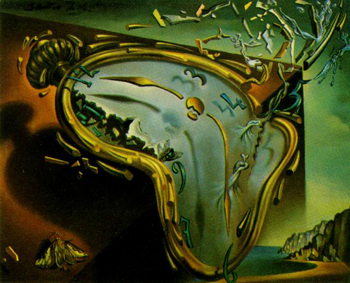 Another appealing early-evening here on California’s north coast, and a Friday to boot — sunshine just about all day with just some foggy/low clouds in the morning, but way-comfortable.
Another appealing early-evening here on California’s north coast, and a Friday to boot — sunshine just about all day with just some foggy/low clouds in the morning, but way-comfortable.
Tomorrow will be the 50th anniversary of the first US landing on the moon, and a first for humanity, too. Even as an old guy, it still feels long ago history to me, and it is — half-a-century, and seemingly a surreal world away.
Reality makes it so…
Today 50 years ago — July 19, 1969 — was indeed another universe, where even a glimpse at today would cause shock and incomprehensible sorrow.
In this vein a most-interesting, nailed-it-on-the-head post by Tom Engelhardt at TomDispatch, published yesterday, with the subject matter our real situation nowadays, not only in the US, but everywhere on the planet.
Engelhardt, among many other things, is a writer (The End of Victory Culture [1995], a history of the Cold War, his latest, A Nation Unmade by War [2018]), and creator/operator of TomDispatch, one of the bestest sites on the InterWeb.
When I started this blog more than 12 years ago (April 2007) at just one of the most-dangerous, nasty junctures of the Iraqi invasion’s aftermath, TomDispatch was an incredible asset, and still is — a truth-telling information platform on national security, climate change, social issues, and just about any cultural/military situation that pops up.
I visit there probably a couple times a day, not only for posts, but the blog/website roll for good news sources.
In his post, Engelhardt reminiscences on American life more than 50 years ago, when he was 20, (he turns 75 tomorrow) and how stunned/disbelieving he would be if informed then how America is now.
Read the whole piece, etc., really worth your time.
Some pertinent snips:
If you had told me that, in those years to come, the American military would be an “all-volunteer” one, essentially a kind of foreign legion, and that those who chose not to be part of it would endlessly “thank” the volunteers for their service while otherwise continuing their lives as if nothing were going on, I wouldn’t have believed you.
If you had also pointed out that economic inequality in America would reach levels that might have staggered denizens of the Gilded Age, that three Americans would possess the same wealth as the bottom half of society, that a CEO would, on average, make at least 361 times the income of a worker, and that for years there would be no genuine protest around any of this, I would have considered it un-American.
…
In sum, I would have been amazed at the way, whatever the subject, Americans had essentially been demobilized (or perhaps demobilized themselves) in the twenty-first century, somehow convinced that there was nothing to be done that would change anything.
There was no antiwar movement in the streets, unions had been largely defanged, and even the supposed “fascist” in the White House would have no interest in launching a true movement of his own.
If anything, his much-discussed “base” would actually be a set of “fans” wearing red MAGA hats and waiting to fill stadiums for the Trump Show, the same way you’d wait for a program to come on TV.And none of this would have staggered me faintly as much as one thing I haven’t even mentioned yet.
Had I been told then that, by this century, there would be a striking scientific consensus on how the burning of fossil fuels was heating and changing the planet, almost certainly creating the basis for a future civilizational crisis, what would I have expected?
Had I been told that I lived in the country historically most responsible for putting those carbon emissions into the atmosphere and warming the planet egregiously, how would I have reacted?
Had I been informed that, facing a crisis of an order never before imagined (except perhaps in religious apocalyptic thinking), humanity would largely demobilize itself, what would I have said?
Had I learned then that, in response to this looming crisis, Americans would elect as president a man who denied that global warming was even occurring, a man who was, if anything, focused on increasing its future intensity, what in the world would I have thought?
Or how would I have reacted if you had told me that from Brazil to Poland, the Philippines to England, people across the planet were choosing their own Donald Trumps to lead them into that world in crisis?
…
The children are right. We’re effectively robbing them of their future.
It’s a shame and a crime.
It’s what no parents or grandparents should ever do to their progeny.
We know that, as in World War II, mobilization on a grand scale is possible.
The United States proved that in 1941 and thereafter.
Perhaps, like most war mobilizations, that worked so effectively because it had a tribal component to it, being against other human beings.
We have little enough experience mobilizing not against but with other human beings to face a danger that threatens us all.
And yet, in a sense, doesn’t climate change represent another kind of “world war” situation, though it’s not yet thought of that way?
So why, I continue to wonder, in such a moment of true crisis are we still largely living on such a demobilized world?
Why is it increasingly a Trumpian planet of the surreal, not a planet of the all-too-real?
I was 20 during Apollo 11, turned 21 that following November. In the Air Force at the time, then an air traffic control trainee, and naive as a baby.
(Illustration above: Salvador Dali’s ‘Soft Watch at the Moment of First Explosion,’ found here).